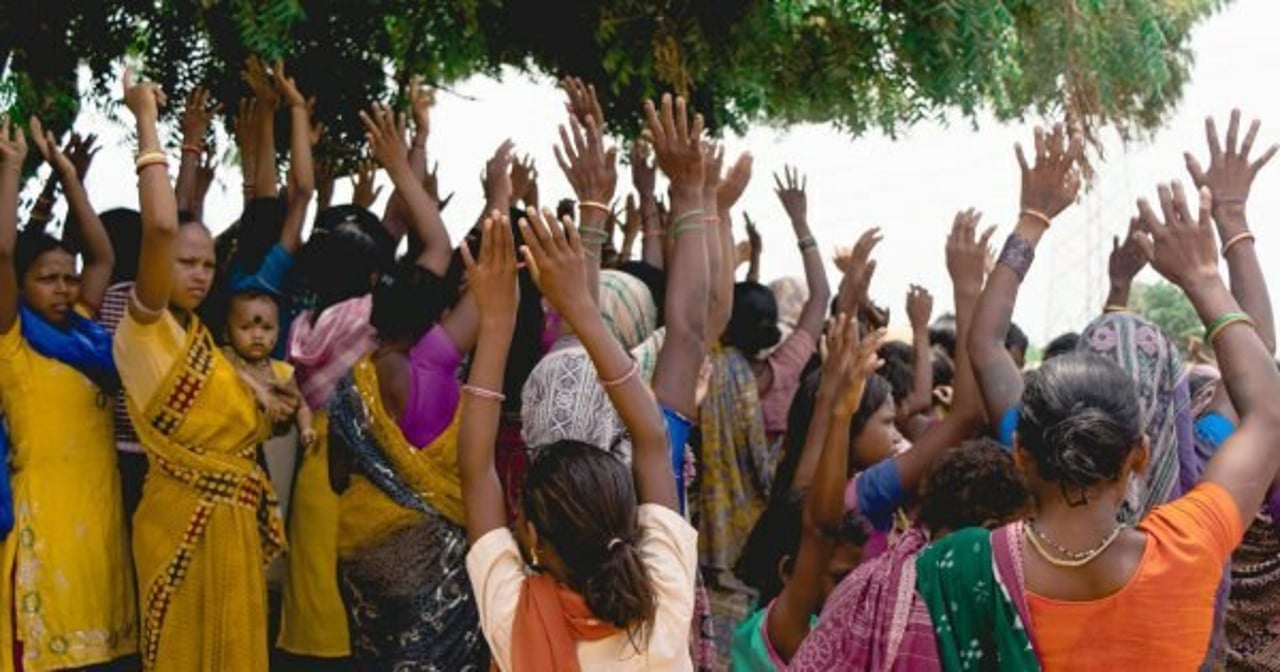Second Rescue at Abusive Brick Kiln Frees 328 from Slavery
Summary:


CHENNAI, INDIA - Late last month, IJM and authorities near Chennai rescued more than 300 people—including 88 children—from bonded labour slavery in a vast and abusive brick kiln. Together we had rescued another 333 people from this same kiln in 2015. The kiln owner who had enslaved them was briefly detained before being released on bail, leaving him free to traffic more families into bondage.


Today, the families freed from this man’s control have returned safely to their home villages, and authorities are gathering evidence to arrest the owner and finally bring him to account for his crimes.
No One Was Safe from Violence
Many of the 101 families rescued this weekend had been trafficked to the brick kiln in December 2015 from Odisha, a poorer state in central India. They had accepted monetary advances and the promise of good jobs, but instead were allegedly forced to work exhausting 12-hour days in blistering heat to repay these ever-increasing debts.
Women and men trapped in the kiln said the owner controlled them with violence, watched them constantly, monitored their contact with relatives, and sent around a false "doctor” to keep them working non-stop.
In one shocking instance, this "doctor” accused a young mother of overfeeding her baby and tried to drag her back to work in the kiln—causing her baby to severely burn his hand in a pot of boiling water. Another young woman was seven months pregnant and still being forced to work.

IJM heard about the recent instances of abuse at the kiln after meeting one labourer who had been severely injured and hospitalized. This man had tried to protect his sick wife from working, but instead was allegedly taken to the kiln owner’s office and beaten ruthlessly.
Authorities Lead Hundreds to Safety
Government officials, the IJM team and more than 20 police officers arrived at the kiln Saturday morning and worked late into the night and through the weekend to bring the families to safety. Officials arranged food, medical care and shelter for the rescued families at a nearby wedding hall, then began painstaking interviews with each rescued slave to learn more about what they endured and how they had become trapped in the kiln.
"This case exposes the organized practice of trafficking people between states for bonded labour slavery—but also the Tamil Nadu government’s increasing effectiveness in stopping this crime,” says Andrey Sawchenko, IJM’s field office director in Chennai.
"It was particularly encouraging, in this case, to see the prompt and dedicated police response during and after the rescue, gathering witness statements from survivors late in the night.”
The next day, authorities granted 222 release certificates to dissolve the false debts holding families in bondage. For many, these certificates may be the only photo identification they have.

IJM and authorities then helped the families return to their home villages in Odisha, where they will join our two-year aftercare program for rescued slaves. They will learn life skills and legal rights, and will be supported as they find safe housing, train for dignified jobs, and support their children in school.
The brick kiln owner was not present during the rescue operation this weekend, but authorities are continuing to gather evidence against him and his accomplices to mobilize their arrest in the near future.
Repeat Rescues Highlight Critical Need
The weekend’s operation was the second high-profile repeat rescue in recent months.
In early March, IJM and Tamil Nadu authorities freed 564 people from a kiln where hundreds had been rescued in 2011. The suspect in that case had also evaded criminal accountability and had trafficked others into his kiln. Now—with stronger anti-trafficking laws passed in India and more officials trained on these crimes—he’s facing much more robust charges and a more proactive public justice system.
"These rescue operations demonstrate the critical importance of ending impunity for those who would enslave and abuse others for profit,” says Saju Mathew, IJM’s vice president of South Asia operations. "These families are now free, but holding perpetrators accountable under local law must be a global priority if we are going to make more than just a dent in the monstrosity that is modern-day slavery.”
IJM has been working with officials in Tamil Nadu state to combat bonded labour slavery since 2001. Our team continues to advocate for arrests and convictions to deter others from enslaving families like these.


And, slowly, the culture of impunity is ending: On Saturday evening, one high-ranking official issued a warning through the media that she would take strong action against any brick kiln or rice mill found to be using bonded labour.For the millions of children, women and men still enslaved today, changes like these will truly save lives.